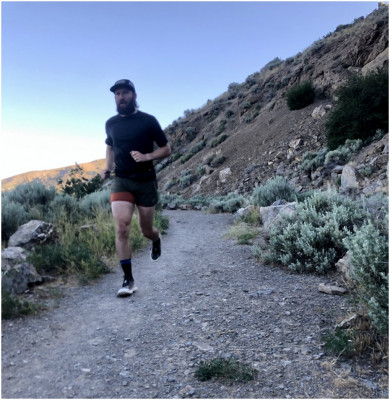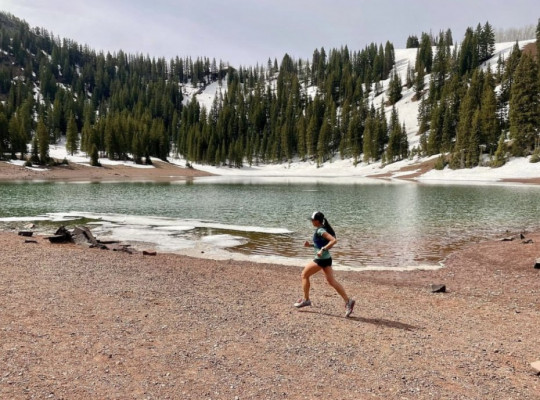8/24/2023 Introducing Local Runners - A Series: Andrea Christensen
The "Introducing Local Runners" series is a fun way to see who is doing what on local trails and in the mountains. I have been fortunate to have shared many miles of singletrack with talented members of the mountain running community, both near and far, and they have been kind enough to sit down with me to chat about their love of the sport. This series asks various questions about how they got started, their future goals, and more. We will highlight a new runner regularly, so be sure to check back. Next up is the incredibly nice California transplant, Andrea Christensen, in a Q&A with SkyRun staffer, Jeremy Leonhardt.
Andrea and I met at the upper Sensei Trailhead in Lehi at 7 a.m. The summer heat was entirely upon us. As I exited the freeway in Draper, my car's thermostat read 83°. After the short drive to the trailhead, which overlooks the valley and Utah Lake, there was a nice breeze, and it was now 71°. Is Lehi the secret for cool summer trail running? Andrea and I did a nice lollipop route of 8 miles with 1100' of gain on super runnable trails.
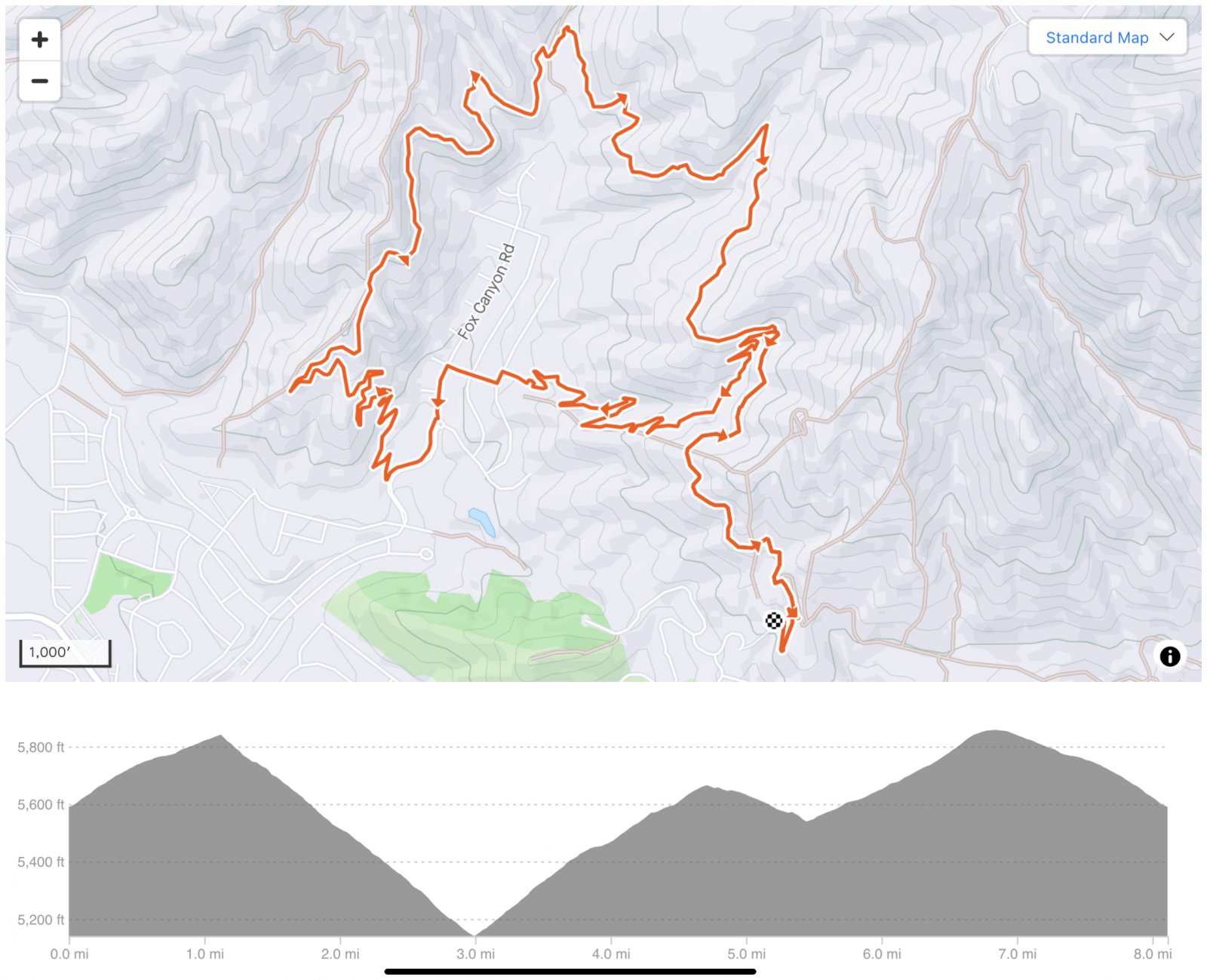
Have you gotten into anything fun lately?
I did Lone Peak recently with my daughter. It was fantastic to see her do something remarkable for her.
How did you get into running?
I started walking in junior high with my mom and sister, then began jogging, which led to cross country and track in high school. I had been inspired by people I knew who did marathons, and I ran my first when I was 20. I wasn't particularly good at them but was excited and ran them recreationally from age 20-36. Then, someone took me on a trail run. And I thought, "Oh my gosh, this has been here all this time? You can just go and climb a mountain on a Wednesday before work? What? Some people do more than marathons, like 50 or 100 miles?" I had no idea, and I wanted to do that.
Many people's journey onto trails or running ultras can coincide with significant life upheaval. There's a reason that people will often turn to the mountains, and at that time in my life, I was going through a big transition. I found a lot of solace, comfort, and strength in the mountains. I think it's a fine line between being in a space where you're running away from life versus running toward healing, health, and peace. It's a line I'm always dancing around. I think sometimes I'm running away when I'm doing these things, and sometimes I know it's a healthy and positive thing. I try to keep it more of the latter, and I know it's something that I need to be conscious of.
After you transitioned to trails, how long was it until you ran your first ultra?
After three or four trail runs spaced over a handful of years, a friend took me up Mt. Olympus on Memorial Day 2017; that time stuck, and I was hooked. I ran my first ultra in August of that year.
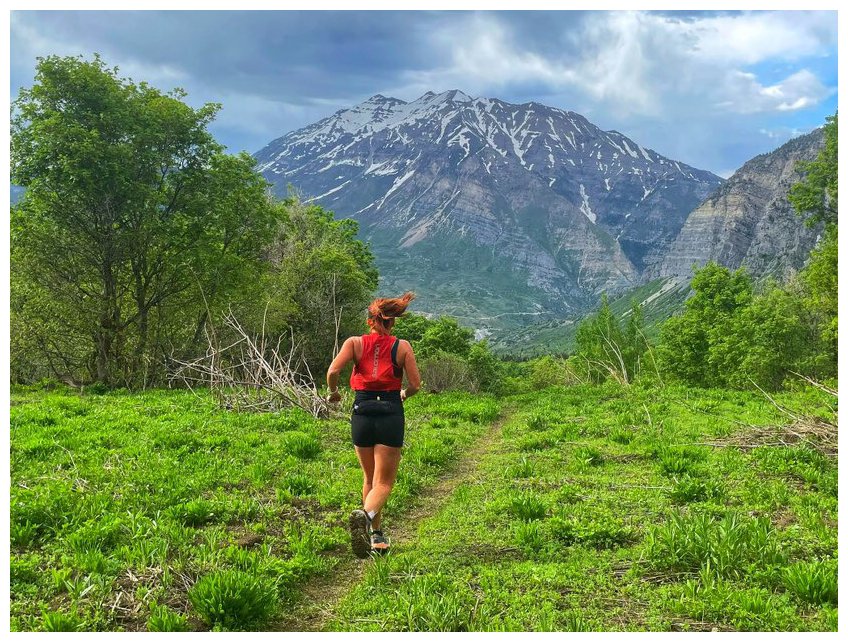
What have you found to be the most challenging part of running?
Managing injuries and trying to stay on top of them. I started running in 2017 and got a stress fracture in April of 2018 that more or less knocked me out of trail running until 2020. That was hard. I spent a lot of time in the gym, got a bike, and started cross-training. I started running again in early 2020 and broke my foot again in August of that year, so that was super disheartening. There are always little things that are coming and going, so I try to keep myself healthy and pay attention to things enough as they arise to try to minimize anything from blowing up too significantly. That's probably the biggest challenge for me, especially as we age, and I want longevity in the sport for as long as possible, so I want to keep my body healthy as much as possible.
So, 2020 was especially tough for you?
(Laughs) I was having a lot of fun running, and it was a great year until I broke my foot again. That was hard and sad, and then I returned to it in the fall. It worked out, and it was fine. But, yeah, 2020 was…whooo, what a weird year for everyone, for sure.
What is the running scene like here, and how are you a part of it?
There is some good diversity in what people like to do, so it's easy to find folks who want similar adventures. If you want to peak bag in the Tetons or run out to Kings Peak, you can find people who want to do that. If you're training for the Wasatch 100 or a race in the desert, you can also find like-minded people. There's just a lot of diversity, and the community is really welcoming and open to having people join them. It's really fun, friendly, and welcoming; it's just a great community.
How do you manage your work-life balance with running?
I make it a priority. I'm fortunate enough to have a full-time job with some flexibility. It has pretty traditional hours, but sometimes, I can sneak out for a longer run on a weekday if I need to.
I have three children and have them for a week on and a week off. On the weeks that I have them, I do early morning runs close to home and shorter objectives on the weekends. On the weeks off, I take advantage of that to maximize my free time and do the longer runs during those times.
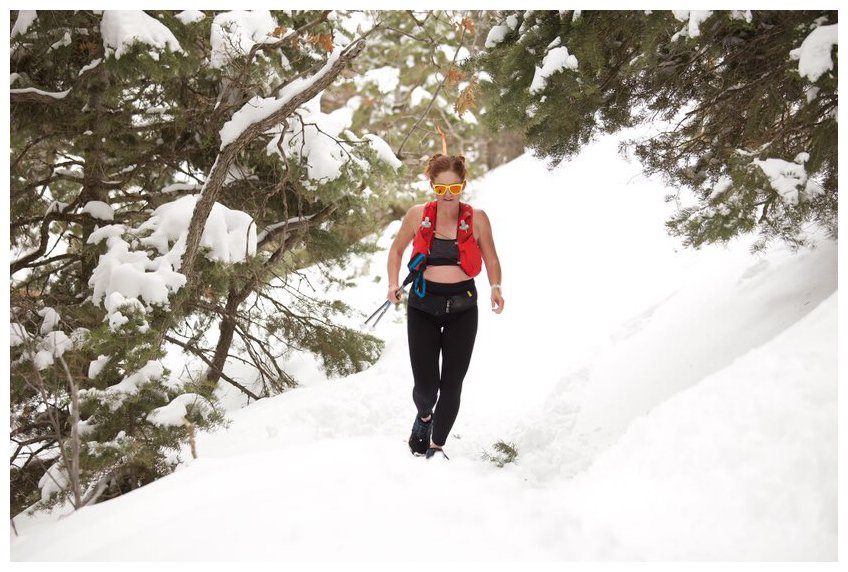
What is your favorite distance?
Maybe 50 miles? I like every distance in different ways. I have good endurance but struggle with my stomach falling apart after 50 miles, so I'm still intrigued by the 100k and 100-mile distances. I feel like I'm learning a little something more each time I do longer races. I don't think those are distances I've cracked yet or reached any potential on, but I'm still interested in those more extended efforts. My strength is in the 50-mile or 50k distance, maybe even the marathon.
What is your approach to running?
Do things that make me alive and happy. I want to be strong and fit and do well at races and on adventures with friends. I'm working on doing things that will help me achieve those goals. But also, I'm willing to skip something that sounds horrible and do something that sounds fun if my body feels up to it and I have the time. My approach is to be flexible and find things that will enrich my life and make me feel strong and joyful.
What advice would you give to a new trail runner?
Learn all the things, read a ton, and ask people questions. Different shoes work for others, so run in what fits and works for you. There are different kinds of trails, and you will find you like certain ones that differ from others.
You don't have to race. Race if it brings you joy. Don't feel like you have to race to be a real trail runner.
Accumulate knowledge. Just ensure you're taking the steps you need to be safe, like having the supplies you need to be on trails. Things like hydration, an emergency blanket, telling people where you will be, and checking in with them when you return. What we are doing is not excessively dangerous, but there is some, so being smart is essential. Beyond that, find what works for you and have a good time.
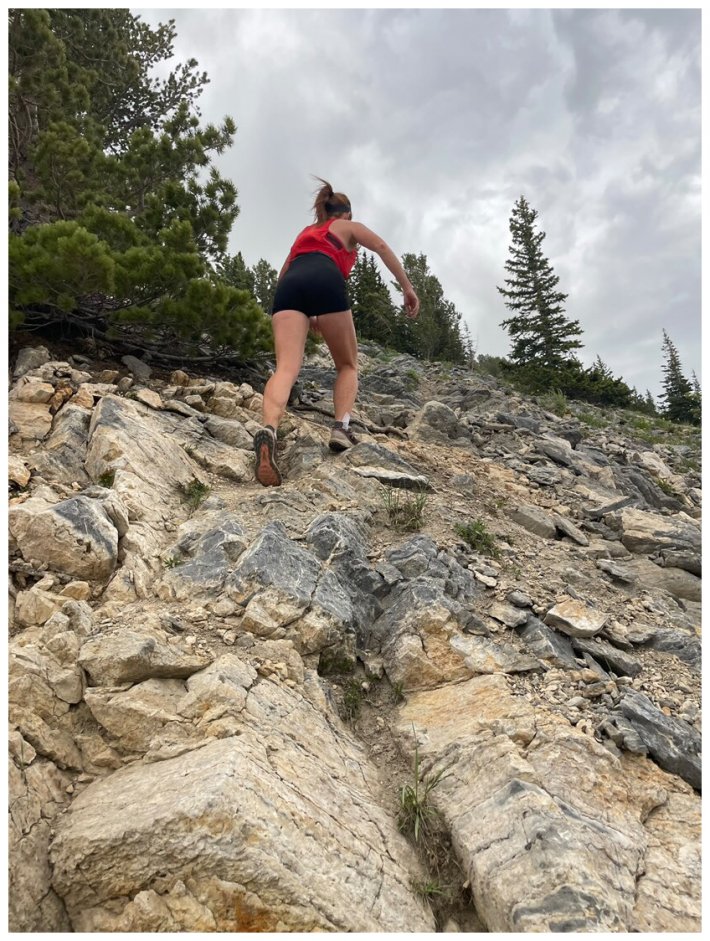
What do you most look forward to at the finish line of a race?
Chatting with people I interacted with on the course and runners I may have played leapfrog with. People that beat me, or maybe I beat them, and I can chat about how they pushed me and how I was grateful for that. Seeing other people finish and the joy, exhaustion, and emotion on their faces is always such a beautiful and emotional thing. Getting the tiniest glimpses into other people's journeys because they are all meaningful. Anybody that's doing anything like that it means something to them.
Laying down. Oh my gosh. Laying down. I think about how I can't wait to lie down at the finish, during a race. I think, "This is really hard, I'm really excited to cross that finish line and lie down."
Have you had a running low or setback?
I had my one and only DNF at Leadville in 2020, my second 100-mile effort. It was a race that I was so excited about and trained hard for. I was running between 70 and 100 miles a week, cross-training, and was able to get some miles in on the course a couple of weeks before. I worked hard, felt fit, and thought I would do well. I had my daughter crewing for me and friends coming up, so it was a big thing.
I got sick reasonably early on in the race. I started feeling nauseous around mile 40, and by mile 50, I began to think that I wouldn't make an important cutoff at mile 62. I called my crew crying from the top of Hope Pass at 12,600ft, around mile 55 and told them I wasn't going to make the Twin Lakes cutoff. They told me to push as much as possible and do my best. My daughter, who was 13 then, texted me that I had a new goal. She most sweetly and encouragingly informed me that my new goal was to eat and drink as much as possible and make it to Twin Lakes. That motivated me to push hard and make that cutoff. I continued to fight cutoffs for the next 5.5 hours, but finally, at mile 79, I knew I wouldn't make the next cutoff and made the call to drop, which was devastating. I was so sick. It sounds silly because I know a race is a race, and for someone like me, who's not an elite runner, it will not change my life in any meaningful way whether I finish or not.
It motivated me to sign up for the Bear 100 six weeks later, and I was able to finish. That was a positive thing for me mentally. It let me have a lot of good conversations with my daughter about how sometimes you push through things, and then there are times when you let go. It allowed me to work through why we do what we do, why I do what I do, what matters, and what doesn't. It was a hard thing but a great learning experience as well.
What do you think about while you are running?
Whatever things in life that are weighing on me at the time. I think about my foot placement, the run that I'm on, and problem-solving. More broadly, I'm thinking about my kids and my relationships. I'm thinking about my job, the cosmos, and the meaning of it. What I'm excited or grieving about at the time. The big things. It's an excellent time to feel all of that. When doing life, it's hard to have the time or brain space to think about some things at a higher level. When I'm out running, it gives me a chance to feel something you don't allow yourself to feel during life's harried pace. It allows me to feel things more deeply than I get to when I'm not running.
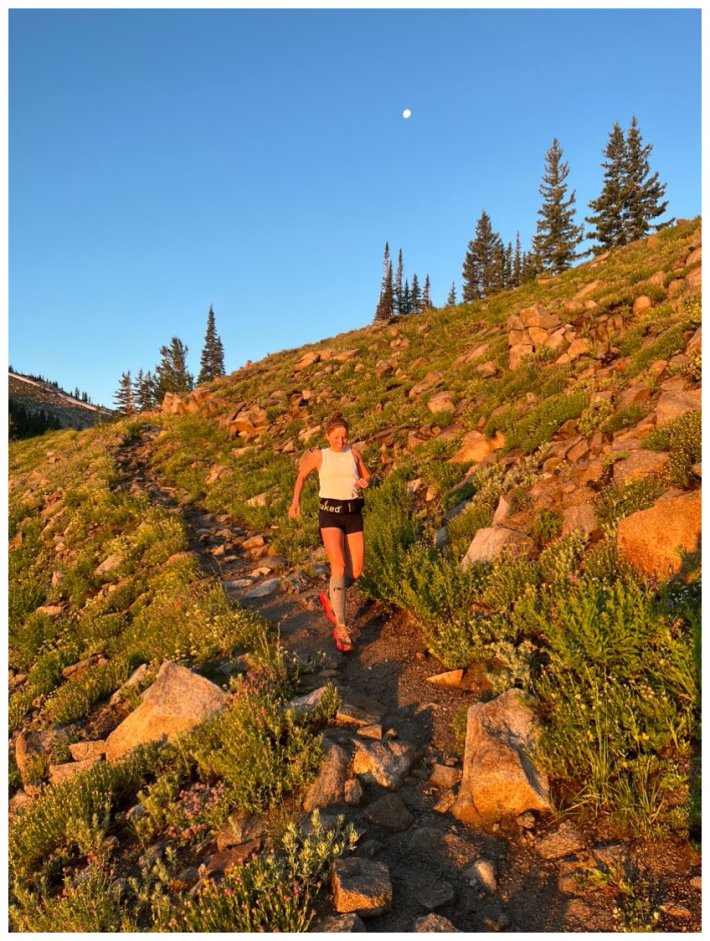
Do you have a favorite piece of gear?
The Naked running belt. I've told a couple of people lately that I love this belt. It sits at the right place and doesn't hold the sweat like a vest, which helps maintain body temps when running in the cold.
------
Andrea is running the Pony Express, her first 50-miler in 2017, in October with the hopes of a PR. Thank you for showing me some wonderful trails and for taking the time out of your day to chat.
------




